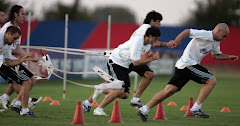To address the above issue a teacher could attempt to use the metacognition and self-regulation tools to assist their students in the learning process. By using these tools a teacher will help students discover ways to set goals, reflect on their own work, and discover ways to essentially motivate themselves.
The metacognition strategy would concentrate heavily on two basic concepts occurring simultaneously. These processes are: monitoring your progress as you learn, and making changes or adapting you strategies as the child may consider appropriate to making the learning process more effective.
Once the teacher has finished a chapter in the book and has tested the students, it would be very beneficial to find any trends in information that may have been wrong on most tests. For example, if question number four was answered incorrectly by a majority of the class, then that information would need to be reviewed.
Teachers can also test students each week on the same information, this way the students will see the information on a weekly basis. They can also ask children to set goals if they have not been doing so well on this particular topic. By guiding a small discussion the teacher can ask the following questions. What is your goal? A student’s goal may be to get 7/10 questions correct rather than 6/10. What does the child already know about the topic? If a child already knows the basic information, than they will only have to work on setting their goals on the concluding parts to the chapter.
They can also attempt to discover ways that the information may be more helpful or relate the information to the child’s life so he/she would be more motivated. Educators might be able to relate the unit to something that has happened to the child or alter the information by using characters of their favorite television show. The teacher may add incentives too; such as those that can improve their score may receive additional free time in class.
When using self-regulation (researchers feel that goal attainment will build self-efficiency and lead people to select new challenging goals), teachers have to spend more time with each child establishing goals for themselves. Since the goals are the main importance of this theory, self-regulation concentrates on three phases of the goal oriented student.
The student’s goals must be specific. A child may say, “I will try harder.’ However this is where a teacher needs to address this issue by asking the student, “How will you try harder? Are you going to read the information each night and review all of your answers by writing them down 5 times?”
Setting goals that occur more often would be more beneficial to these students. Asking students to remember the information from chapter one for three months will not help assist their learning. Rather, telling a student that they will have a second chance in two weeks to perform better on the same information will spark more interest in a child to remember that important information.
Educators have to consider self-set goals and multiple goals as well. These goals may have to be closely monitored by a teacher and parent/guardian in order to make sure that the child is able to attain their smaller goals. If not, a child may be more likely to become less motivated or even quit.
Technology can play a specific role in this learning in several ways. One is by using a self-evaluation sheet on-line. By providing an online self-evaluation sheet the student may regulate his or her work when they are home as well as in school. The second thought I had would be to change the assignment to use difference technological advances such as a photostory or slideshare. These tools would provide students an alternative to just reading and writing.
The on-line questionnaire would provide students an alternative way to review the information they are trying to learn. Similar to how we use one in our class, students could have access to a questionnaire/survey (Survey Monkey) that addresses the main themes of the unit. The questionnaire does not have to be graded, rather just reported as completed or incomplete. Some questions would be guided as: How familiar are you with this topic? If you took another test: I would score better, worse, or the same? What questions do you have for me (the teacher) that you might be uncomfortable asking in class?
After reading a chapter, and sometimes two chapters, the information is fairly fresh in a child’s mind. Once there has been new information from new readings, a child is likely to begin to forget the previous chapters. Therefore, teachers need to find a way to refresh a child’s mind and monitor their information. Educators can accomplish this task by replacing the readings with short clips from miros, photostories, teachertube, etc. Just about anything that would not require a student to reread new or old information. Also, since children have either visual or audio learning styles, this would allow different learning styles needs’ to be met.
About Me
Blog Archive
Monday, February 11, 2008
Subscribe to:
Post Comments (Atom)
Categories
- metacognition and SR (1)
- Reflections (2)



1 comment:
Dennis:
I am a professor of physical education and live in Brazil.
Teaching children to soccer and I am a passionate by metacognition. I will be a master's dissertation on the subject. I would stay in touch on this matter and how works the metacognition with their athletes.
My blog is: www.metacognicao.wordpress.com
my email: jb.8@hotmail.com
Thanks
Post a Comment